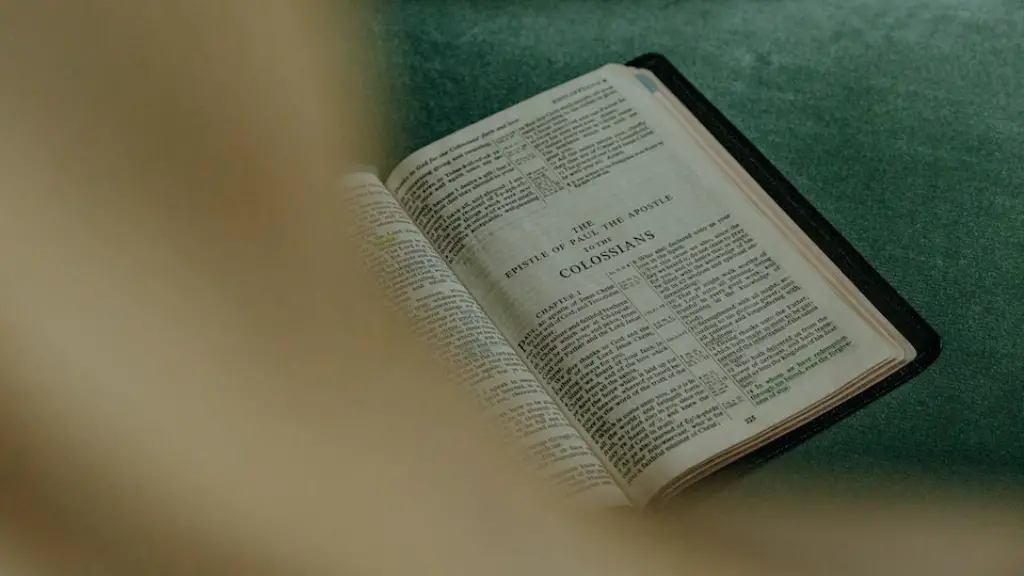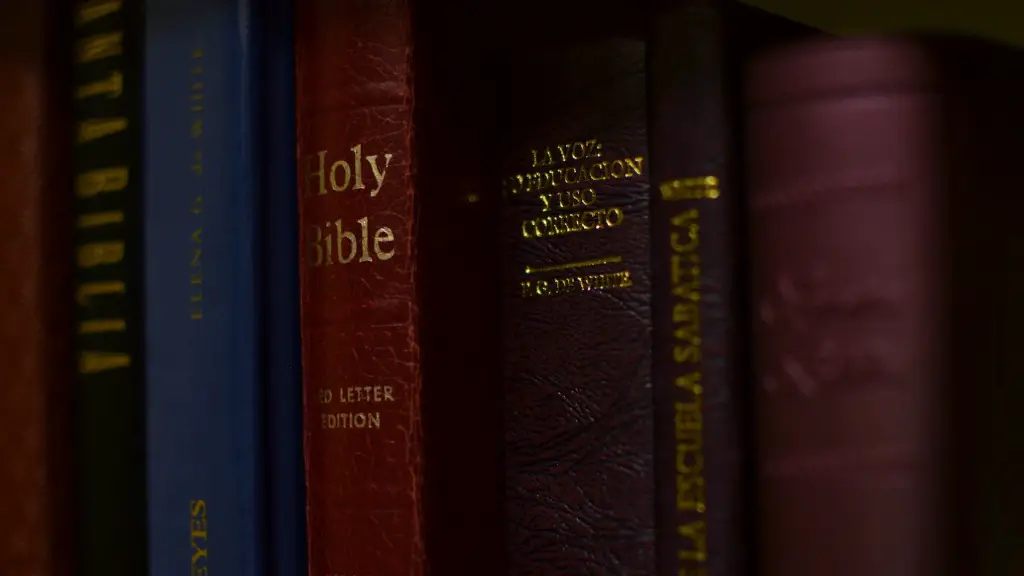Is The Bible Copyrighted?
For centuries, the Bible has been the most widely distributed book in the world. According to a 2000 Gallup survey, 76% of residents in the United States consider the Bible the word of God. But when it comes to protecting the text of the Bible, is the Bible copyrighted?
The short answer is no, not in the United States. The Bible is among a handful of books that aren’t protected by copyright laws. This means that anyone is free to distribute its text as they please. It also means that the text of the Bible can be used in any form without permission. That includes its reproduction in other works of literature, literature studies, sermons, books, films, plays, and other works of art.
However, some versions of the Bible are in fact copyrighted. For instance, certain English translations packaged with study guides distributed by major Bible publishers are copyrighted. This means they cannot be reproduced without permission. It’s important to note, though, that the actual Bible text itself is not copyrighted.
When it comes to copyright law, it’s important to distinguish between the text of the Bible and its publication. Copyright law does protect the work of art created by the publisher, such as typefaces, illustrations, and design. That applies to any version or translation of the Bible. So if you create an original digital or printed book that is your interpretation of the Bible, its publication is protected.
Additionally, if you create a new version or translation of the Bible, you must obtain a copyright for that version. This will protect it from being reproduced without permission. However, the text itself is not protected by copyright law in the United States. The only bible versions that are protected are those that include original translations, commentaries, illustrations, and other original materials created by the publisher.
Translation Issues
One of the main reasons there has been so much confusion surrounding the copyright of the Bible is because of translations. People assume that, because different versions are produced all the time, they must be protected under copyright law. But this is not the case. When translating the Bible, the translator is limited to the same material already in the Bible. This is why copyright does not apply to the text itself.
However, the publisher’s copyright does protect the original translation, illustrations, and other materials created specifically for that version. For instance, if a translator creates a new version of the Bible, the publisher has the right to copyright that version and restrict its replication or distribution.
It is also worth noting that different countries have different copyright laws. So, even though the Bible is not protected in the United States, it may be in other countries. In the European Union, for example, no translation of the Bible can be published without the publisher owning the copyright.
Using Digital Copies of the Bible
In the digital age, more and more people are using digital copies of the Bible. Though the original text is still not copyright-protected in the United States, many Bible publishers are finding ways to protect their digital editions. Some publishers demand that users request permission to use the material. Others demand that users pay for the privilege. And some simply deny access to the text.
It’s important to note that these restrictions are only placed on the publisher’s copyright, not the text of the Bible itself. So, while you cannot duplicate or distribute certain digital versions of the Bible without permission, you are still allowed to use the text itself in any way you choose.
What Are Public Domain Texts?
The term “public domain” is often used to refer to texts that are not protected by copyright laws. This includes works that are not under copyright, or those whose copyright has lapsed. So, when it comes to the Bible, public domain texts refer to any version or translation outdated or not protected in the United States. As long as the translation or version of the Bible is not protected, anyone is free to reproduce the text or use it in any way they choose.
Fair Use and the Bible
In addition to public domain resources, there is also something called “Fair Use”. Fair Use is a legal doctrine that allows its users to reproduce, redistribute, and reuse copyrighted material for certain purposes. This means that one may be able to use a copyrighted version of the Bible for certain activities such as teaching and research. However, exactly what is and isn’t permissible under Fair Use is open to interpretation. It’s best to consult a lawyer if you are unsure of something.
Permission Requirements
In certain cases, however, permission is required to use a copyrighted version of the Bible. Publishers may require permission when using the text for commercial activities, such as in radio or television broadcasts, advertising, and entertainment. However, they may also require permission in situations where the user is not profiting from the use of the text. It is best to consult the publisher beforehand to find out what their policies are.
Educational Materials and the Bible
The Bible is widely used in the education system and for this reason, its use in the classroom is usually not restricted by copyright. This is because the use of the Bible in an educational setting generally falls under the “fair use” law, which allows its use without permission. However, it is still important to note that any materials created specifically for educational use may be subject to copyright laws.
Bible Apps and Copyright Law
As technology advances, more and more people are turning to Bible apps for their spiritual needs. Though apps and websites can offer a wide range of features designed to make the Bible more accessible, it is important to understand that copyright law applies to digital versions of the Bible. Many Bible app developers will require users to request permission before using the text in any way.
Conclusion
In conclusion, the text of the Bible is not protected by copyright law in the United States. However, certain translations or versions may be, including certain English translations packaged with study guides. Additionally, different countries may have different copyright laws with regards to the Bible. It is important to be aware of these laws before using any version of the Bible, be it in print, digital, or other formats.




